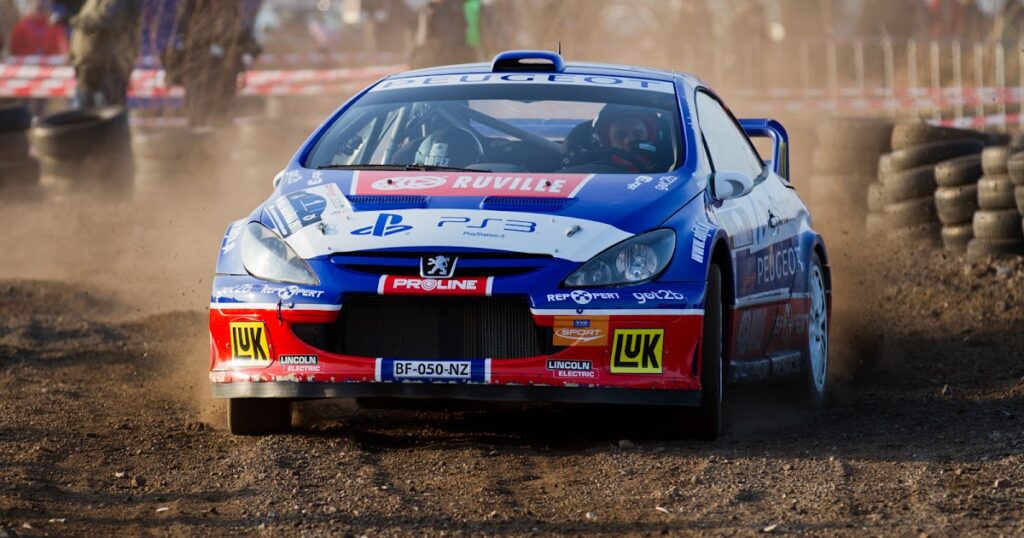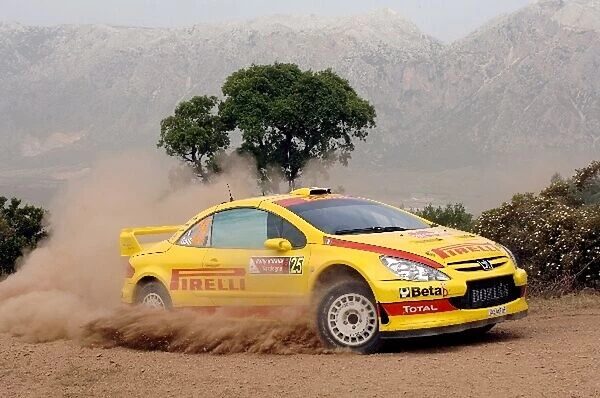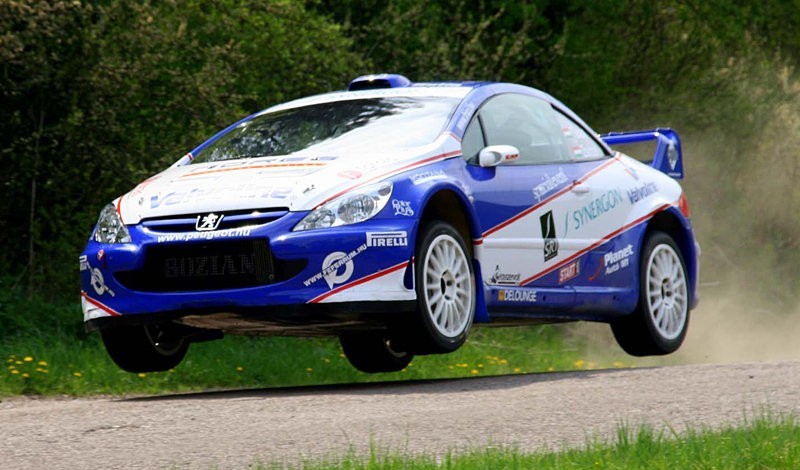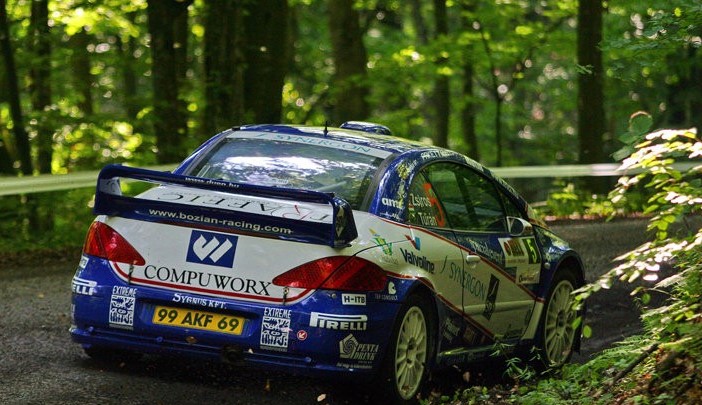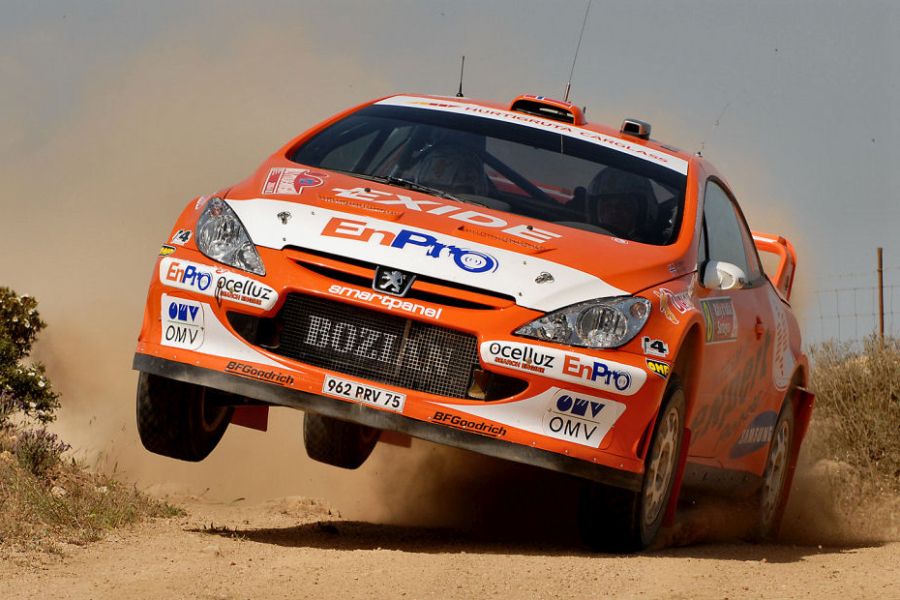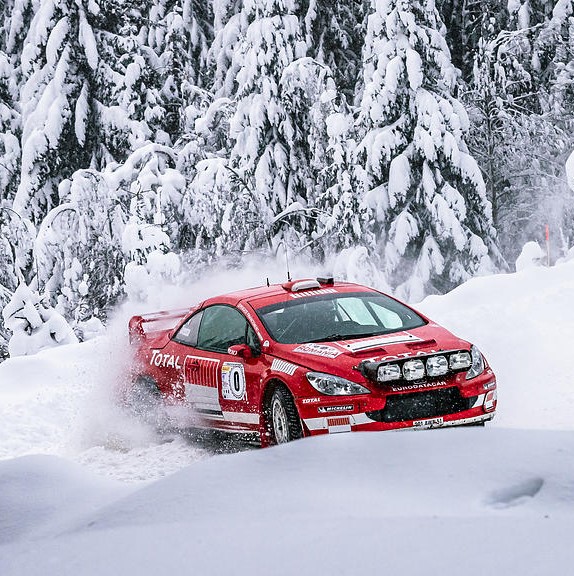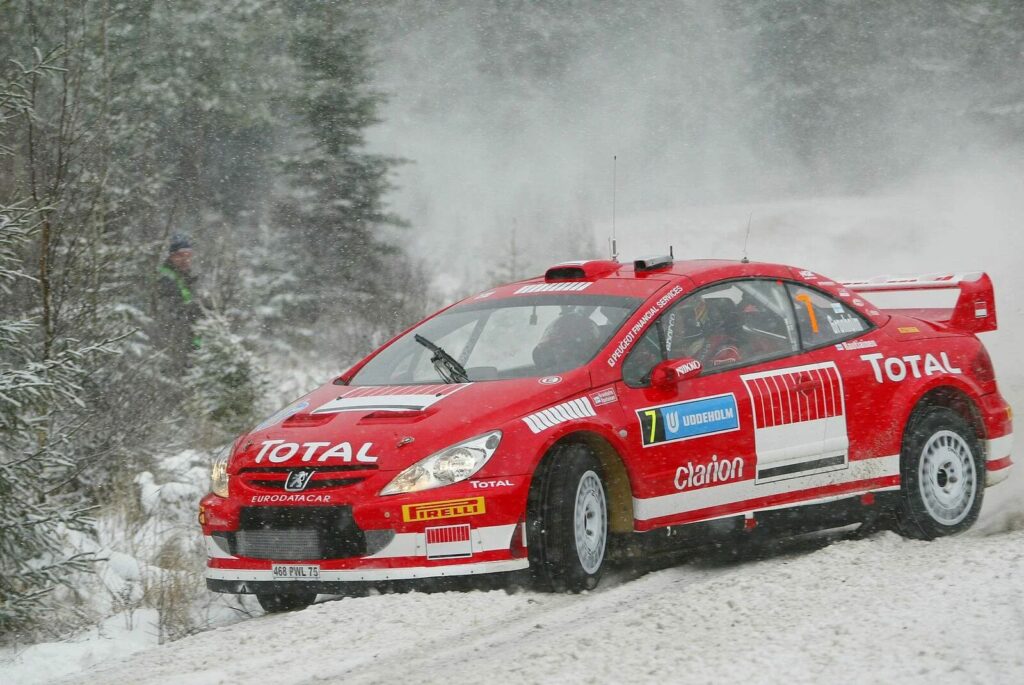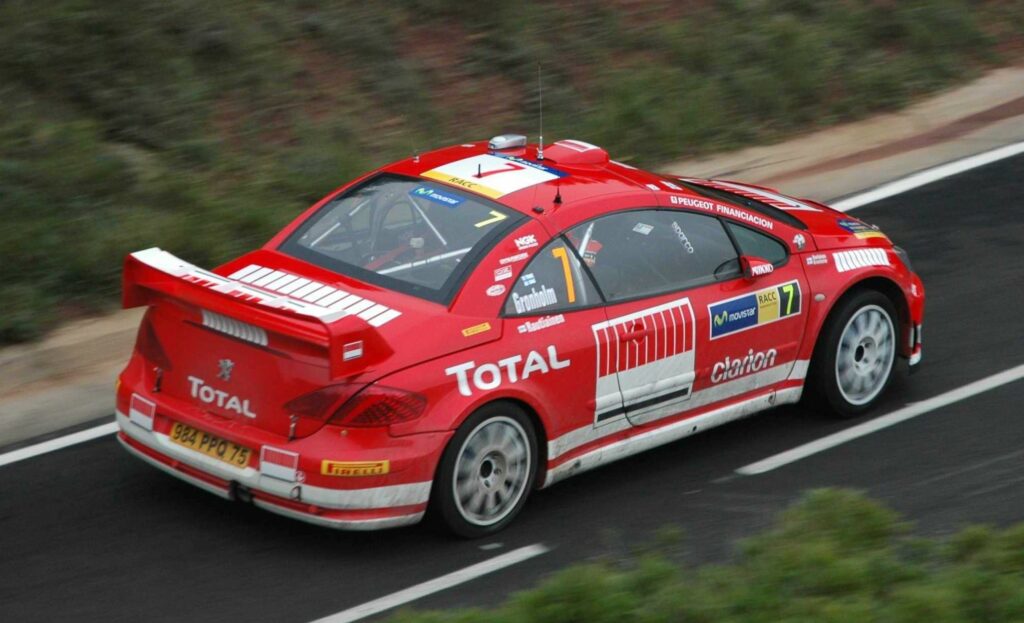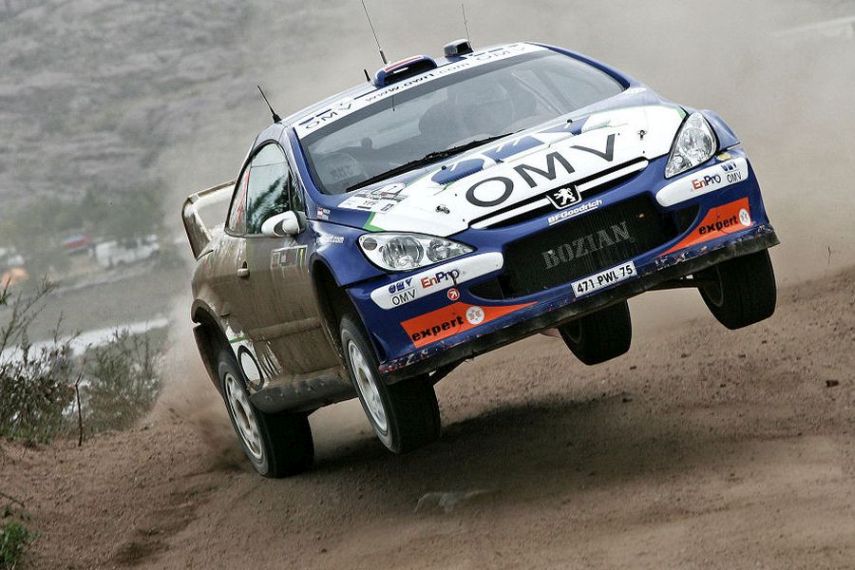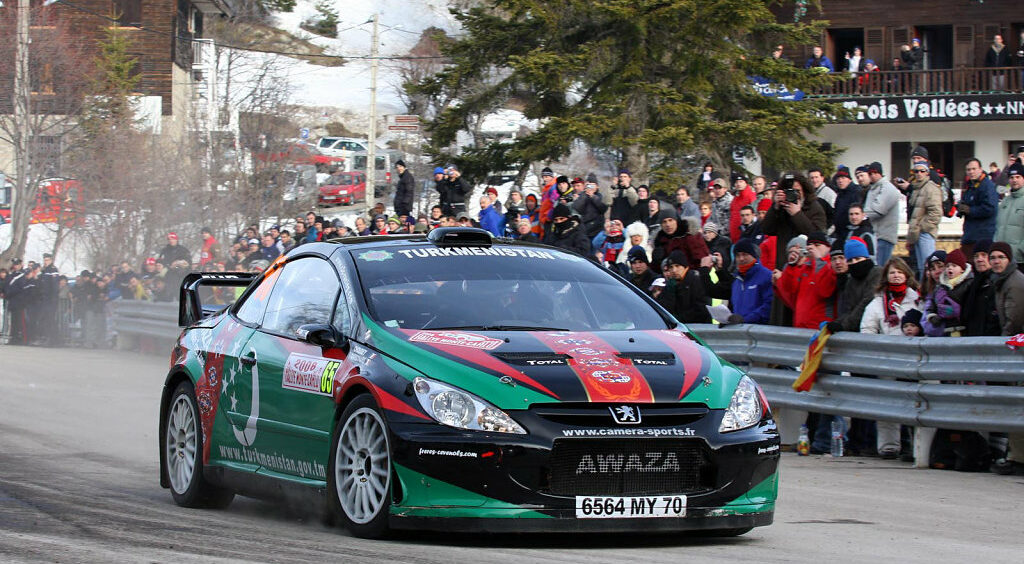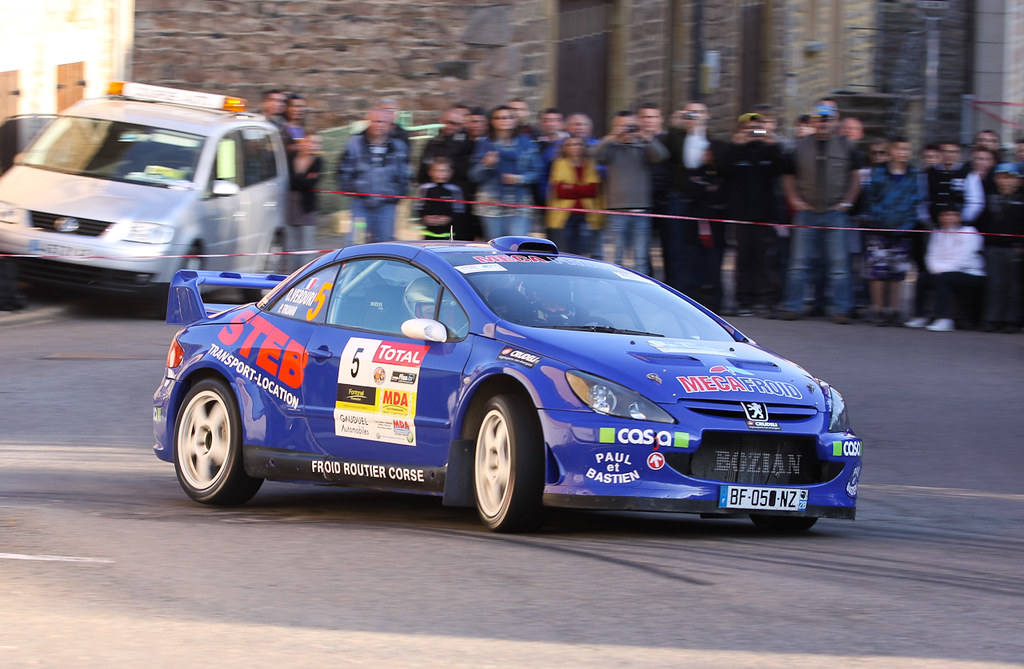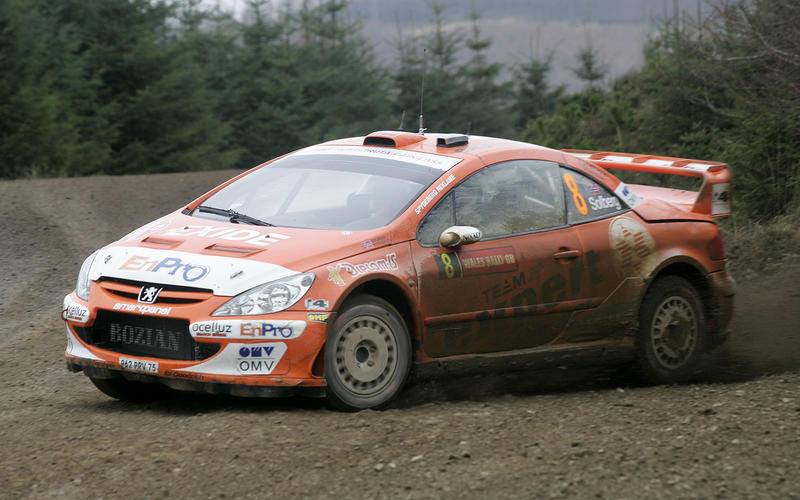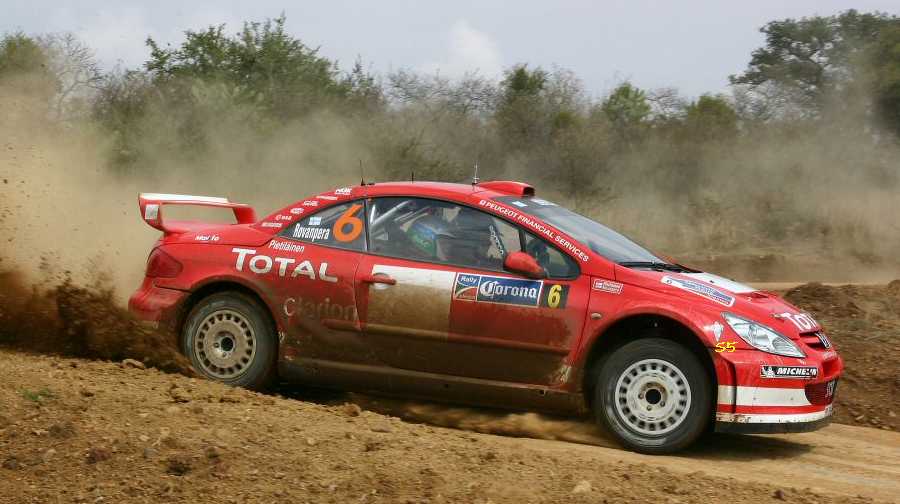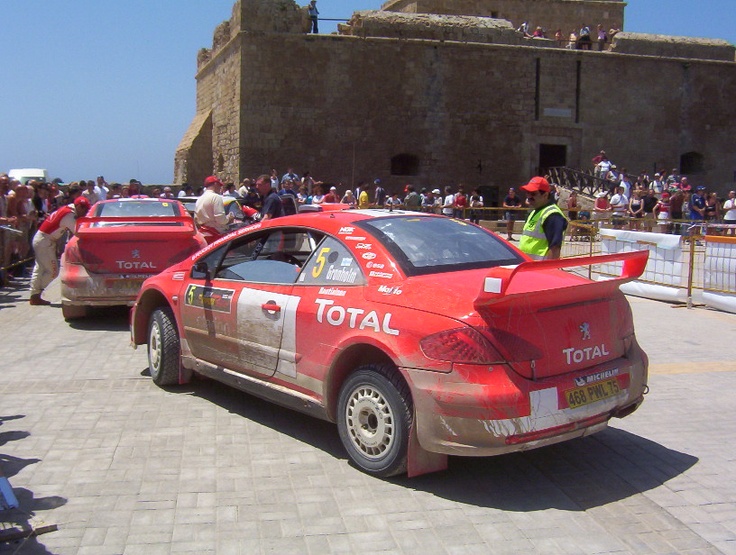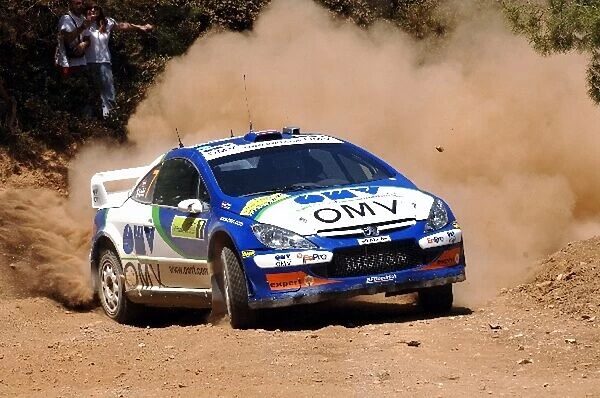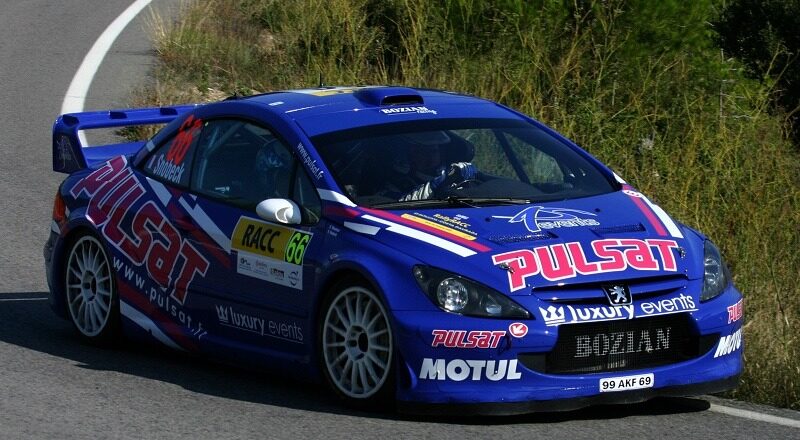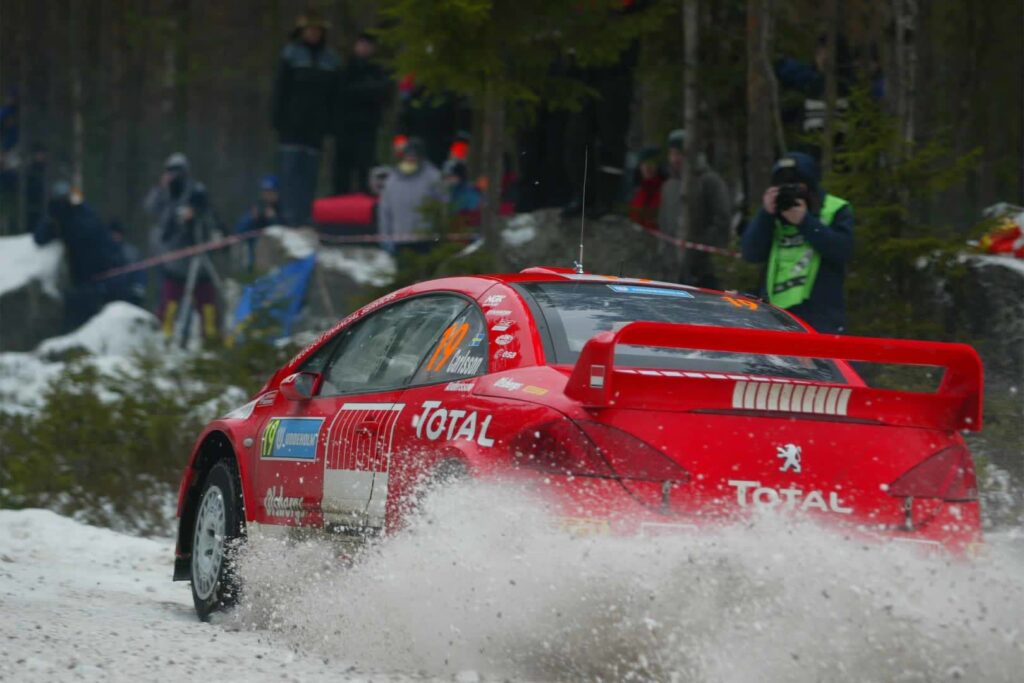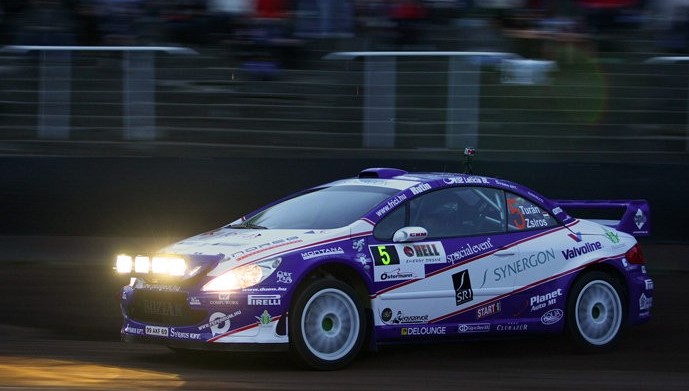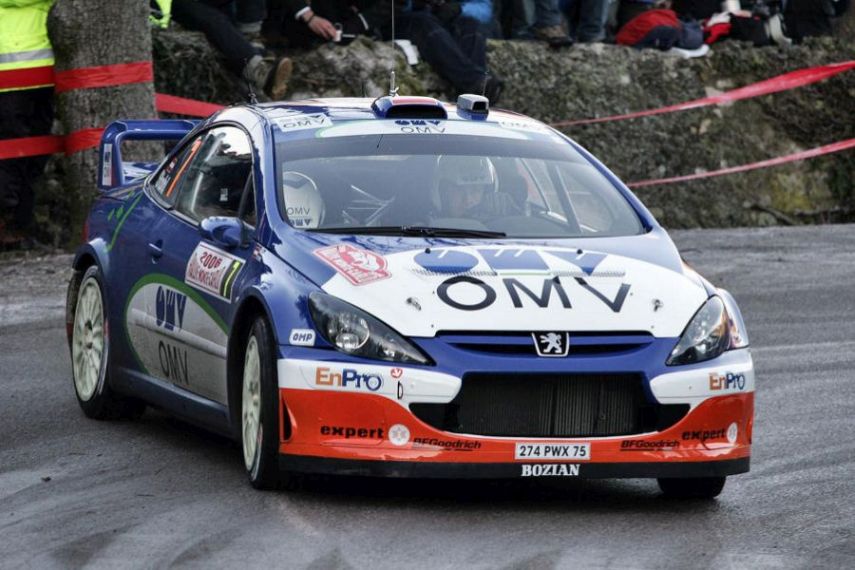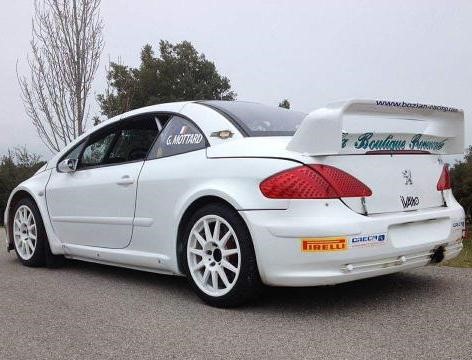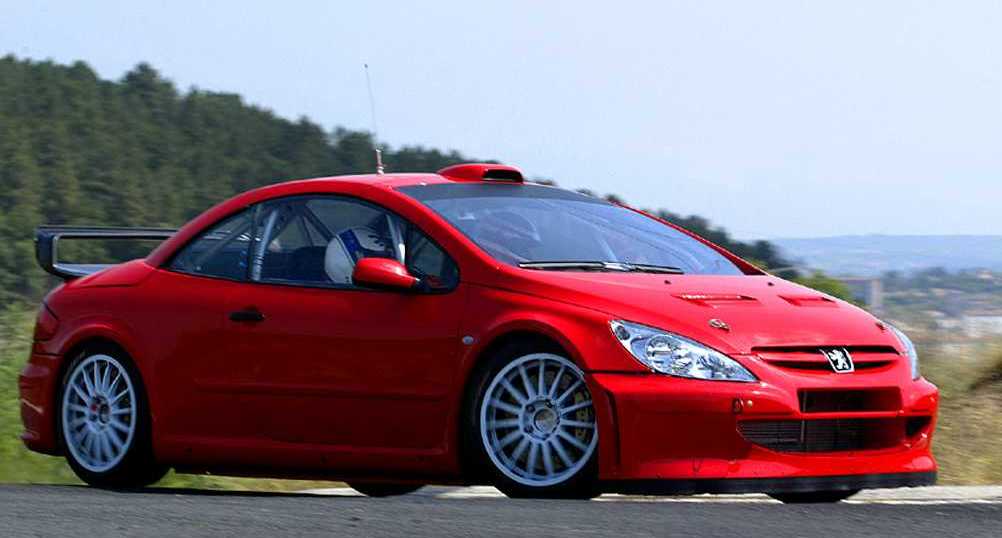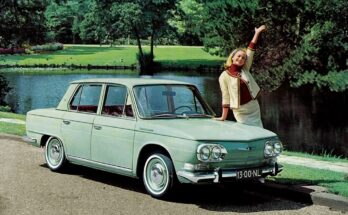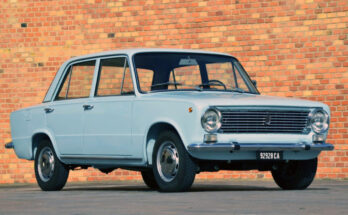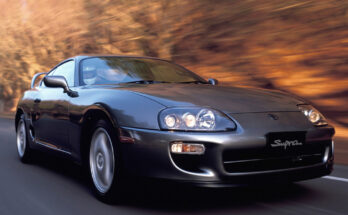In the realm of rally racing, where speed, precision, and innovation converge, every car that graces the track carries with it a legacy of performance and engineering prowess. Among these, the Peugeot 307 WRC stands out, albeit for its brief yet sort of impactful presence in the rallying scene.
Hailing from the storied lineage of Peugeot Sport, the 307 WRC made its debut in the World Rally Championship (WRC) in 2004, with high hopes pinned upon it. Designed to succeed the immensely successful Peugeot 206 WRC, which clinched numerous titles, including three consecutive manufacturers’ championships from 2000 to 2002, the 307 WRC — which was the only WRC car to be based on a cabriolet — had big shoes to fill.
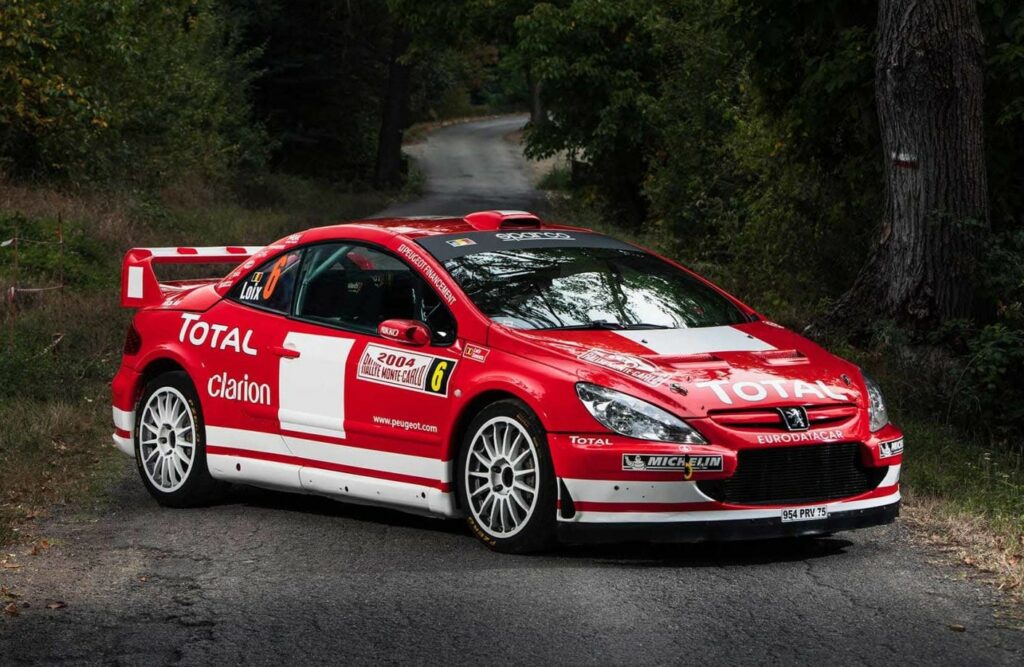
At first glance, the Peugeot 307 WRC exuded the trademark aggressive styling and aerodynamic finesse typical of rally cars. With its wide wheel arches, extended front and rear bumpers, and prominent rear wing, the 307 WRC exuded a commanding presence on the rally stage. The aerodynamically sculpted bodywork not only enhanced the car’s visual appeal but also served a functional purpose, aiding in generating downforce to improve stability and grip at high speeds.
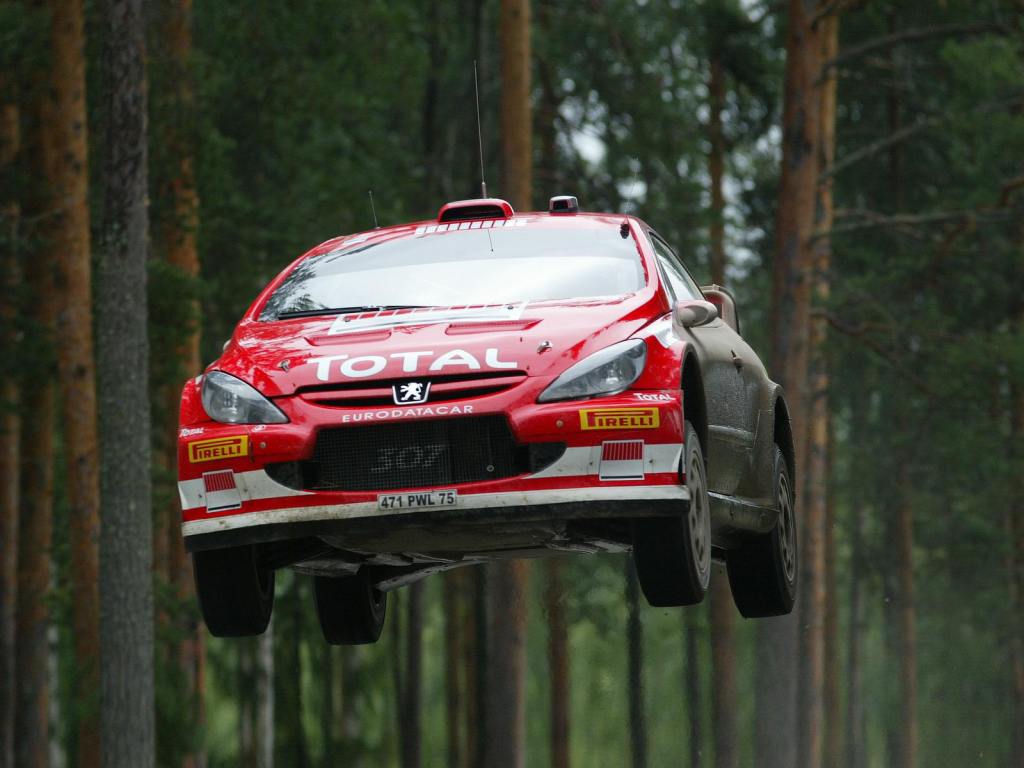
The bold Peugeot lion emblem emblazoned across the grille proudly proclaimed the car’s pedigree, while the striking livery, usually dominated by red color, added to its dynamic aesthetic. From its menacing stance to its aerodynamic enhancements, every aspect of the Peugeot 307 WRC’s styling was meticulously crafted to convey its racing pedigree and performance prowess.
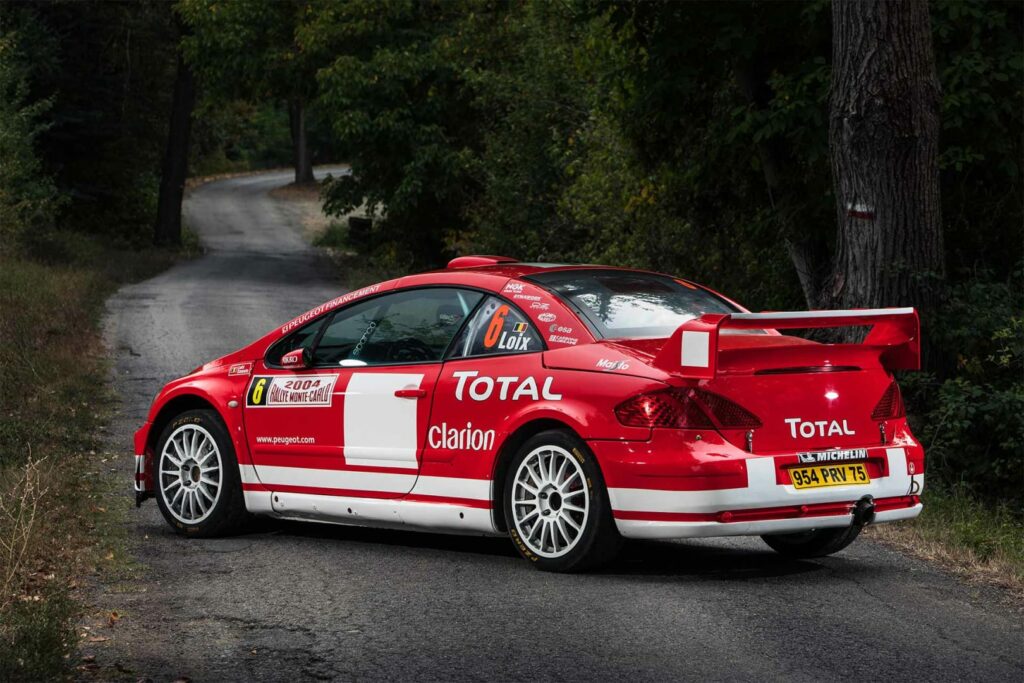
Underneath its sleek exterior, it housed a potent turbocharged 2.0L inline-four cylinder engine, capable of delivering upwards of 300 horsepower to all four wheels through a sophisticated all-wheel-drive system. Paired with a sequential gearbox, the 307 WRC possessed the mechanical prowess to tackle the most demanding rally stages with aplomb.
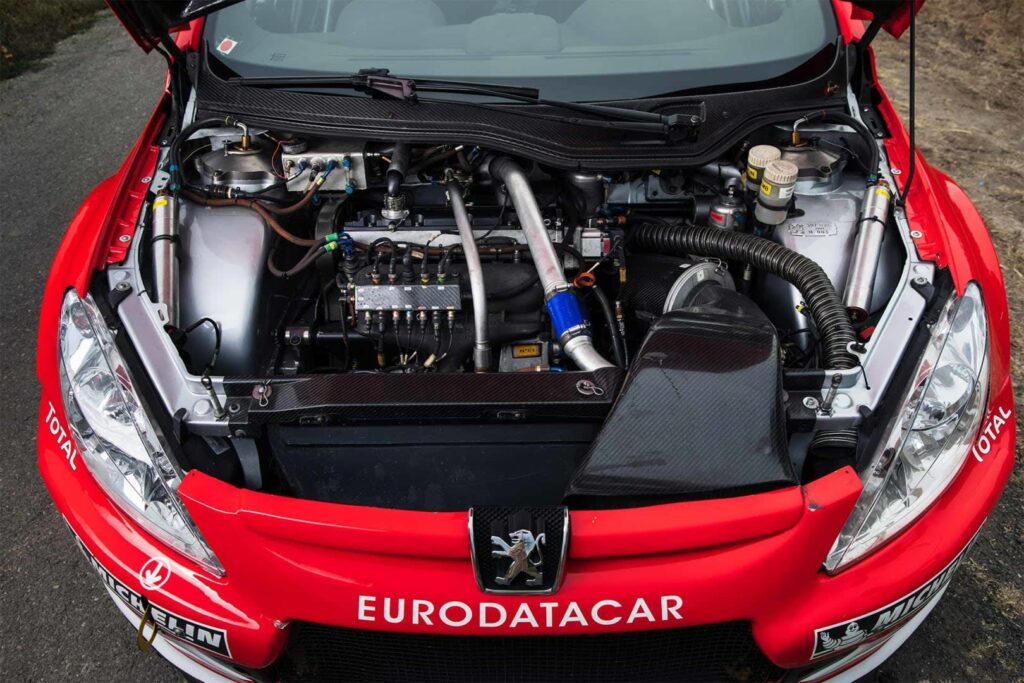
However, despite its promising start, the Peugeot 307 WRC faced a myriad of challenges that ultimately hampered its success on the rally circuit. One of the primary issues stemmed from the car’s weight distribution and handling characteristics, because of which it was not as capable of handling the narrow and winding stages that are typical in rally racing, where quickness and responsiveness are crucial.
Related: Remembering the ST185 Toyota Celica GT-Four
Furthermore, the 307 WRC struggled with reliability issues, particularly with its drivetrain and suspension components. In the unforgiving world of rallying, where races are often decided by mere seconds, any mechanical failure can spell disaster for a team’s chances of victory. Despite the best efforts of Peugeot Sport’s engineers and mechanics, the recurring reliability woes of the 307 WRC cast a shadow over its competitive aspirations.
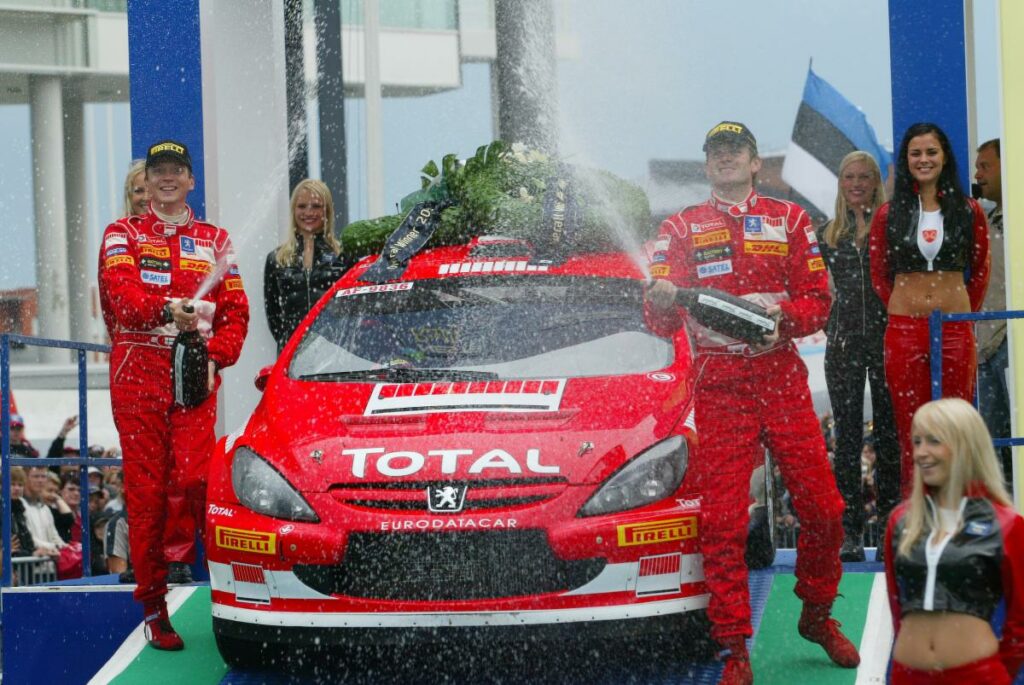
Despite its shortcomings, the Peugeot 307 WRC did manage to achieve some notable successes during its brief tenure in the WRC. Its crowning achievement came in the form of victory at the grueling Rally Finland in 2005, where Finnish driver Marcus Grönholm piloted the 307 WRC to a dominant win, showcasing the car’s potential on high-speed gravel stages.
Related: Remembering the Nissan 300ZX
However, this triumph proved to be a fleeting moment of glory amidst a sea of struggles for the Peugeot 307 WRC. As the WRC landscape evolved, with increasingly fierce competition from manufacturers such as Ford, Citroën, and Subaru, Peugeot found itself unable to keep pace with the rapid advancements in technology and performance.
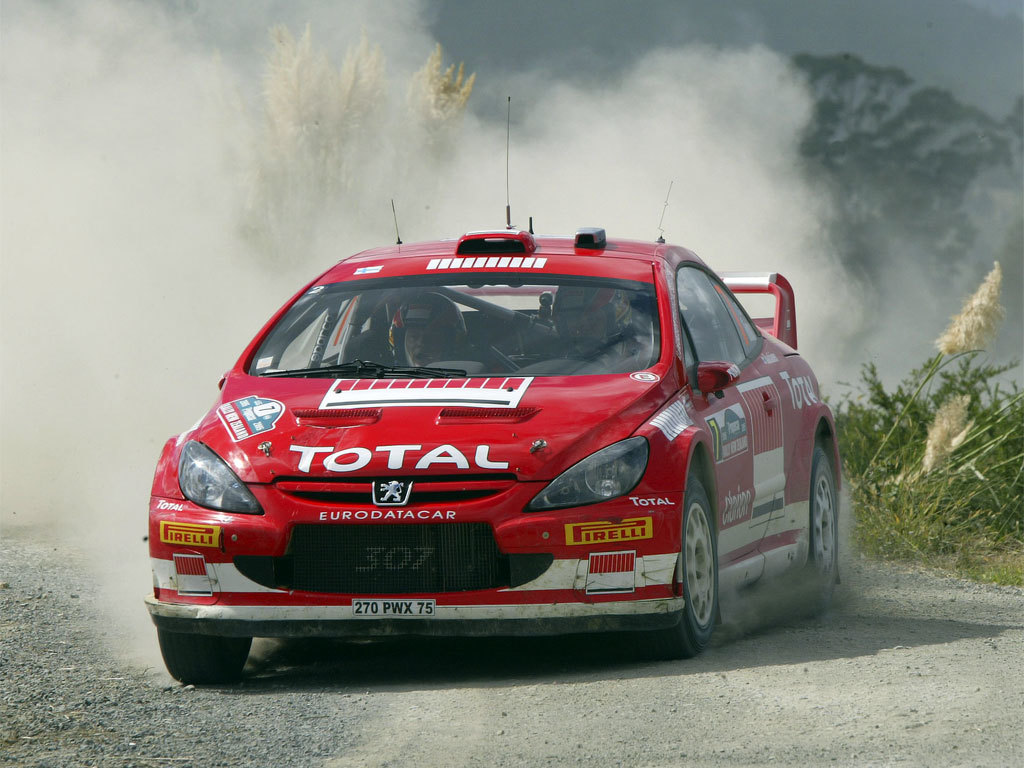
Consequently, Peugeot made the difficult decision to withdraw from the WRC at the end of the 2005 season, marking the end of the road for the 307 WRC. While its tenure may have been short-lived, the Peugeot 307 WRC’s memory lives on as a testament to the highs and lows of rally racing and a reminder that even the most promising projects can fail when faced with adversity.
Related: Remembering the Toyota MR2
In retrospect, the Peugeot 307 WRC serves as a poignant reminder of the unpredictable nature of motorsport, where success is never guaranteed, and even the most meticulously engineered machines can fall short of expectations. Though its time in the limelight may have been fleeting, the indelible mark it left on the annals of rallying history ensures that the memory of the Peugeot 307 WRC will continue to be cherished by enthusiasts and aficionados alike.

A computer animation professional with over 23 years of industry experience having served in leading organizations, TV channels & production facilities in Pakistan. An avid car enthusiast and petrolhead with an affection to deliver quality content to help shape opinions. Formerly written for PakWheels as well as major publications including Dawn. Founder of CarSpiritPK.com

